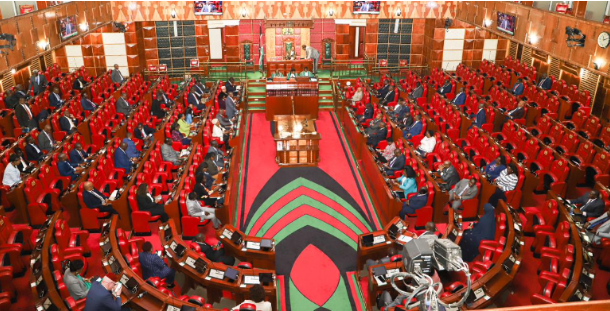
The push by MPs to enact the National Government Constituency Fund (NG-CDF) into the constitution has received a boost after courts declined to halt the process.
The High Court on Thursday declined a push to stop the process as was petitioned by opponents of the legislation.
MPs are in the process of enacting into law three funds to cushion them from perennial court actions.
Through the Constitution of Kenya (Amendment) Bill, National Assembly Bill, 2025, the lawmakers are seeking to secure the legal standing of the NG-CDF, the National Government Affirmative Action Fund (NGAAF) and the Senate Oversight Fund.
The Bill is co-sponsored by Rarieda MP Otiende Amollo and Ainabkoi MP Samuel Chepkonga.
By refusing to issue orders halting the ongoing legislative process to entrench the NG-CDF into law, it is seen as having a ’first win’ for proponents of the fund, especially lawmakers who rely on the NG-CDF to finance local development projects in their constituencies.
The legislative process to formalise and protect the NG-CDF has faced challenges, particularly over concerns about its constitutionality and separation of powers between the executive and the legislature.
In his ruling, High Court judge Lawrence Mugambi declined to issue conservatory orders against the legislative process on the Bill that recently underwent nationwide public participation.
“There is no reason to grant interim conservatory orders at this stage since the parties are already before the court,” he said.
“The issue of conservatory orders can still be revived on June 5, when the court will issue further directions on the ruling date.”
By declining to stop the process at this stage, the courts are allowing Parliament to continue debating and possibly passing a new or revised law to safeguard the NG-CDF, although a final ruling on its legality may still come later.
Katiba Institute and four others, including the Kenya Human Rights Commission, had petitioned against the move to embed the fund in the constitution.
In its objection to the petition, the National Assembly had argued that it is an attempt to arm-twist Parliament against its sole constitutional mandate.
“The petition seeks to interfere with the legislative mandate of the National Assembly under 95 (3) and 256 (1) (a) of the Constitution of Kenya and is, therefore, defective,” the National Assembly argued in court documents.
“The petition seeks to influence the decision of the National Assembly to accede to the demands of the petitioner in contravention of Article 1 (3), (4) and Article 2 (1) of the Constitution of Kenya.
“The bill is still undergoing the legislative process, hence the petitioner is yet to exhaust the avenues for redress and has a forum to air its views on the bill through the public participation forum and is, therefore, premature before this court.”
According to the National Assembly, the orders sought violate the constitution as they attempt to usurp the powers of the House to propose constitutional amendments through a parliamentary initiative under Articles 95 and 256 of the constitution.
The other respondents in the petition besides the National Assembly are the Attorney General, the Senate and the Controller of Budget.
The case resumes for hearing on June 5.











